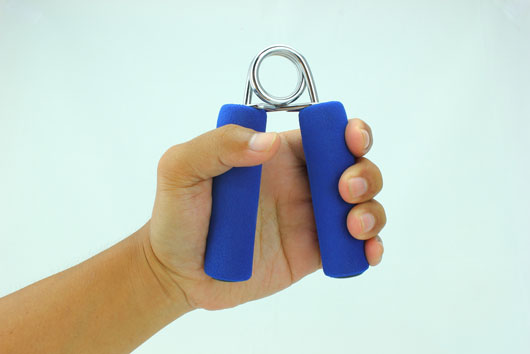Neck Cracking: Is It Safe or Should I Stop?
※ Download: Is it bad to crack your knuckles
Well, popping these joints at will is a little more difficult than, say, cracking your neck, so the potential for injury is a lot slimmer. I have yet to say I have had problems.

I believe that from age 12-13 it became visible and towards age 15 it was rather severe. They can also give you advice on how to change your lifestyle, such as exercising or losing weight, to minimize neck pressure or pain. Is my finger still healing or is there something else wrong with it?

Neck Cracking: Is It Safe or Should I Stop? - OK, but could cracking your knuckles cause other forms of damage?

Some people crack their knuckles by pulling the tip of each finger one at a time until they hear a crack. Others make a tight fist or bend their fingers backwards away from the hand, cracking the lot at once. If you are one of those people who sits and cracks your knuckles while others wince, at some point somebody is bound to have told you that cracking your joints gives you arthritis. Depending on which research you read, between and of people do it, with so than women. Whichever method is used, the noise is created in the same manner. The space between the joints increases, causing the gases dissolved in the synovial fluid bathing the joint to form microscopic bubbles. These bubbles merge into large bubbles which then get popped by additional fluid which rushes in to fill the enlarged space. This gives the space in the joint time to return to its normal size and for more gases to dissolve in the fluid, ready to form bubbles which can then pop all over again. Taking an engineering approach, cracking the knuckles repeatedly over many decades could in theory damage the cartilage covering the joint. Close to the knuckle In fact, very few studies have been carried out at all. Perhaps one of the most well-known is the self-inflicted research rewarded with an Ig Nobel Prize in 2009. For more than 60 years, a Californian doctor called Donald Unger cracked the knuckles of his left hand at least twice a day, leaving his right knuckles uncracked. There have been some other, perhaps more formalised studies carried out. In 1975, twenty-eight residents in a Jewish nursing home in Los Angeles were asked whether they had ever cracked their knuckles habitually. Those who had in their hands later on. In a larger study conducted in Detroit in 1990, researchers examined the hands of three hundred people over the age of 45. The authors say this means knuckle-cracking should be discouraged, but I wonder whether the people who crack their knuckles might feel more discomfort in their hands in the first place. Could this indicate a predisposition towards problems later on, rather than a cause? The most recent study, published just last year, is the most comprehensive so far, because it looks not only at whether people ever crack their knuckles, but also how often they do it. You might guess that cracking your knuckles every fifteen minutes could have a very different effect from doing it once a day, but again it made no difference to rates of osteoarthritis. In fact, in the prevalence of osteoarthritis between those who did or did not crack their knuckles. Crack on So how did the idea of a relationship between knuckle-cracking and arthritis emerge? The risk factors of arthritis are age, a family history of the condition, and previous accidents with hand, or a lifetime of working with your hands doing heavy labour. OK, but could cracking your knuckles cause other forms of damage? There are from knuckle-cracking, with injured thumbs and sprained finger ligaments, but these are rare. So if you like cracking your knuckles then by all means carry on, but just bear in the mind of the doctors who carried out the research in the LA nursing home. You can hear more Medical Myths on. Disclaimer All content within this column is provided for general information only, and should not be treated as a substitute for the medical advice of your own doctor or any other health care professional. The BBC is not responsible or liable for any diagnosis made by a user based on the content of this site. The BBC is not liable for the contents of any external internet sites listed, nor does it endorse any commercial product or service mentioned or advised on any of the sites. Always consult your own GP if you're in any way concerned about your health.
This early study has been criticized for not taking into consideration the possibility of confounding factors, such as whether the ability to crack one's knuckles is associated with impaired hand functioning rather than being a cause of it. And what if you do it regularly for years— could it hurt you then. The cracking mechanism and the resulting sound is caused by carbon dioxide bubbles suddenly partially collapsing inside the joints. I think most people would not notice or really worry about your knuckles, though I can hear it's been a real problem for you. Cracking Knuckles: Is it Good or Bad to Crack Your Knuckles. Are Cracking Joints Normal. This can occur with aging as muscle mass and action change. Well, popping these joints at will is a little more difficult than, say, cracking your neck, so the potential for injury is a lot slimmer. After about six decades of habitually cracking the joints on his left hand, he found that there was no increased presence of arthritis in his left hand when he compared this to his right hand.



